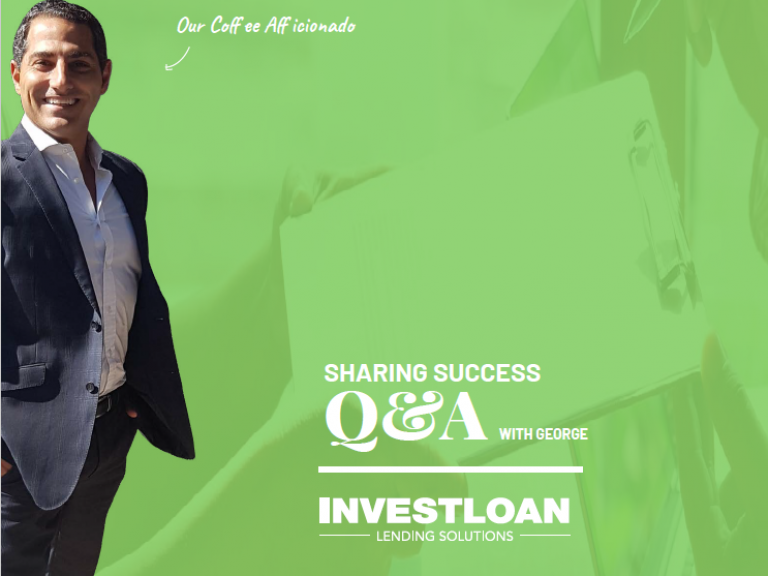
Win-Win Negotiations
The phone is for pre-qualifying and not for negotiating. Okay, you may use it for some to-ing and froing on a negotiation at a later stage but that’s further down the track. You need to meet with the agent and perhaps also the vendors themselves and do your negotiating face-to-face.
There have been lots of books written on negotiating techniques. (One of the classics is the readily available Getting to Yes by Roger Fisher, William Dry and Bruce Patton, published in Australia by Random House.) I’m not going to attempt to teach you how to negotiate. But I’d like to draw your attention to one key aspect of negotiation.
What motivates a vendor to sell to you?
That’s what it comes down to. If you’ve ever sold a house yourself, you know that there are some people you just ‘want your house to go to.’ What makes people feel this way? In any transaction between people, there are two basic elements:
• The task and task objectives (in this case, selling your property and getting the price you want)
• The people: relationship and rapport (in this case, between the vendor and the prospective purchaser).
Focus on the people
It’s human nature. In communication, we respond to people based not just on our task objectives (what we want from them) but on rapport (how we get on with them). I have often seen vendors sell properties to people for less than they could have got elsewhere, simply because they had a rapport with the purchaser: they wanted their property to go to a certain person. It’s not all about price.
There are plenty of examples of older ladies, farmers and people who have owned their properties for a long time wanting their home to go to a ‘nice young couple’ or someone they think is doing good in the community: to them, the extra $20,000 offered by less congenial folks may not be that important.
Example
I once bought a farm from an old dairy farmer. He had people in suits knocking on his door every day but he sold his subdivided parcel to me and gave me first right of refusal. Why? Because I used to sit on his porch and have tea and scones with him and chat about his farm and what he would like to see done with it when he eventually sold. (No tricks: I genuinely took an interest and I still keep in touch with him years later.)
He was looking to sell because he was in his 70s but he's owned the property for over 50 years and was, understandably, very attached to it. Some people like to have a development named after them: this great old fellow was just happy that, with me, his development was going to have a school and parts of the proceeds were going to help disadvantaged youth.
When it came time to sell his property no matter how many people had approached him, he rang me directly and told me straight that I could have the property for a particular price. I replied that I’d be interested in buying the property but I might need some vendor terms. He ended up loaning me nearly 60 percent of the purchase price for four years which enabled me to get a head start on the development and refinance. Of course, you have to discuss money. There has to be a fair settlement. But that wasn’t the bottom line here. The vendor wanted to see his property developed the way he wanted it. That was the important motivator in this negotiation.
That’s why I say: meet face-to-face with the vendors. Identify what their motivation is. Discuss with the vendors what they would like to see happen with their property. (At least get the agents to ask!)
The point is: don’t underestimate the importance of building a rapport – bonding and sharing with the vendors and identifying what they would like to see happen to their property. Here’s an example of a discussion I had with a vendor on site, via the agent. I went to inspect a property that I had already pre-qualified by phone as being of interest to me. The vendor, Al, was at the property. After I introduced myself, I asked Al a few questions.
John: So, how long have you lived at the property, Al?
Al: I’ve lived here on and off for 44 years. My wife and I live out on the farm. We spend six months on the farm and six months in here. We built this house for ourselves 44 years ago.
John: Boy! Forty-four years ago! You must have picked this up for a song.
AI: I tell you, lad, I paid a hundred pounds for the block of land and the house cost two or three hundred pounds!
John: Wow. You must have a lot of fond memories tied up here. What would you like to see happen with the property, Al?
Al: We’d really like the property to go to another couple, like my wife and me, who could enjoy it as we did, either as a holiday home or the main home. We’ve kept it in very good shape. We realize it may need to be built up but the land’s over 800 square meters and it has a good aspect near the beach and opposite the lake.
John: Are you keen to get a quick sale? Have you made commitments to use the money?
AI: Yes, we’re pretty keen to make a quick sale. Now we’ve decided to sell and as we’re in our 70s, we really don’t want to waste too much time with agents. So if we get a decent offer above $500,000, we’d certainly sell.
John: Well, my wife and I are really interested in buying a property like this that we could build as our holiday home, so our kids and even our grandkids could use it. We love it down here because it’s so quiet and it seems secure. And it’s only 30 minutes from where we live ourselves! We see ourselves building a modest but comfortable two storey home here. My wife has already done some work on the plans: we’d have the bedrooms upstairs overlooking the river to one side and then using the large backyard for a patio with the garages built underneath.
Al: Yeah, that’d work real well here. And I’m sure you’d love to live here. You’d get a lot of enjoyment out of the location. And you’re right. It’s safe and secure and your kids would enjoy it as much as our kids and grandkids have.
John: Listen, Al, we’d be very interested in acquiring your property. If we could settle up early, would you think about discounting the price because it’s a little above our budget? Or perhaps offering some terms?
AI: Sure. Look, if you’re really that interested in purchasing it, I’d be interested in helping you. We can talk.
That’s how you can ‘enrol’ a particular vendor in wanting to help you acquire the property. In the end, I didn’t buy Al’s property but I should have: it sold for 20 percent above our discussion and I could have resold it for nearly doubled since then.
Focus on the task
The other key focus of the negotiation will be the task. For most vendors, that will be the purchase price of their property but the terms and conditions of the contract, or the time to settlement, may also be on their minds.
What’s the vendor’s motivation? How can you offer them what they want or need in return for what you want? For example, if you’re looking to buy a property and you have your finance established, try offering cash within seven days. That will invariably get you a discount and, depending on the vendor’s needs, sometimes very substantial discounts.
The key is to be ready with your financing and perhaps with your contract documents, to enable you to execute quickly. Once you have your structure in place, this won’t be as difficult as it sounds. If you can make quick decisions and payments, promote the fact.
A lot of people don’t like using real estate agents and a direct, no-nonsense approach with the prospect of a swift conclusion may be a powerful motivator to sell. But remember: what’s your motivation? If you’re paying cash, you’re going to want to be onto a winner at a worthwhile discount on market value.
>>> Coming Next: Submitting An Offer
Please note: This is an extract from the Success From Scratch – it may not contain the exercises from the full version of the book/audio set, for full version please contact us or follow our blog for more.
Thank you,
The team@Custodian








